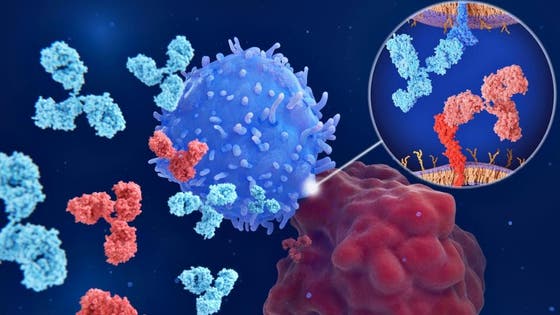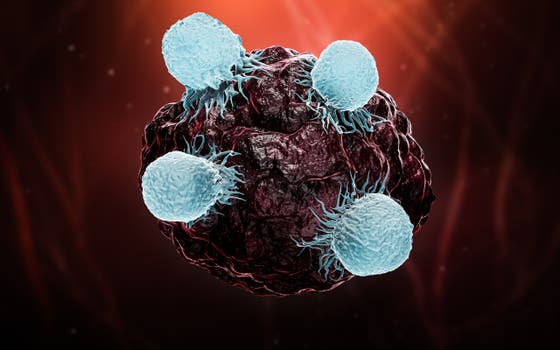Newsletter I&I nieuws
April 30: Optimizing HIV treatment and monitoring beyond virologic suppression

PhD research by Patrick Oomen (UMC Utrecht) revealed that there may be remarkable differences in research outcomes between formal clinical trials and real-world settings. In this context, it remains important to include real-world outcomes to continue to optimize HIV care to enhance the quality of life for those living with HIV.
Read moreMar 5: Newly discovered bacterial species named after Rob Willems

Investigators from the worldwide Enterococcus Diversity Consortium collected 886 enterococcal strains from widely diverse hosts, ecologies, and geographies. This study identified 18 previously undescribed species which were named after renowned investigators in the enterococci field, amongst these prof. Rob Willems, PhD (Department of Medical Microbiology, UMC Utrecht). This newly discovered enterococcus species (found in chickens) is named Enterococcus willemsii.
Read moreJan 9: Unraveling the role of immune inhibitory receptors for the treatment of cancer

The work in the PhD thesis of Akashdip Singh (UMC Utrecht) contributes to a better understanding of immune inhibitory receptors for the treatment of cancer and outlines key considerations for the development of therapies targeting LAIR-1 and novel inhibitory receptors as cancer immunotherapy.
Read moreDec 21: A layered approach of response to treatment in psoriasis and psoriatic arthritis

A new biological medicine, tofacitinib, is effective in patients with psoriasis, but only in those with higher IFN-γ levels. In addition, systemic corticosteroids may be a safe option in psoriasis as there is no evidence of an increased risk of flare-ups. Predictive factors of treatment success of methotrexate in atopic dermatitis are not generalizable to psoriasis. These were the main conclusions of the PhD work by Nanetter Vincken (UMC Utrecht) who defended her thesis on December 20, 2023.
Read moreDec 13: Blog by Julia Drylewicz: How “playing it safe” may lead to increased mortality

We all know the trolley dilemma in which a runaway trolley heads towards five people on a track. You have the option to divert the trolley onto another track where only one person stands, sacrificing that one individual to save the other five. With the recent approval of maternal vaccination against the respiratory syncytial virus (RSV) by both the European Medicines Agency (EMA) and the U.S. Food and Drug Administration (FDA), this dilemma takes another meaning.
Read moreNov 16: New insights in diagnosis and treatment of immune deficiencies

In his PhD thesis, Bas Smits (UMC Utrecht) describes the discovery of two new genes that can cause primary antibody disorders. He also elucidated the role of T cells in intestinal inflammation and demonstrated how T cells can be inhibited in vitro. Furthermore, he discovered that antibiotics and antibodies work equally well in preventing infections in patients with mild PAD and described risk factors that can predict which patients develop lung damage. Finally, Bas Smits was the first to outline both first- and second-line therapies for lung autoimmunity.
Read moreOct 12: Clinical epidemiological studies for improving patient care in juvenile idiopathic arthritis

In his PhD thesis, Joeri van Straalen (UMC Utrecht) applied traditional and advanced epidemiological research methods to patient data from the Wilhelmina Children’s Hospital, the global Pharmachild registry and collaborating registries, in order to answer clinically relevant questions aimed at improving patient care in juvenile idiopathic arthritis (JIA).
Read moreSep 29: Long-term management of inflammatory bowel disease

Withdrawal of anti-TNFα treatment in patients with well-controlled inflammatory bowel disease is associated with a high risk of disease recurrence after discontinuation of treatment. In his PhD thesis, Remi Mahmoud (UMC Utrecht) suggests that endoscopically confirmed remission of disease and measurement of serum drug levels may help to predict the relapse risk.
Read moreSep 30: Burden of Infectious Diseases in Europe

Influenza, tuberculosis and HIV/AIDS have the highest burden in Europe among the most common community-acquired infections. Vaccine-preventable diseases have a lower burden, but in countries where vaccination coverage is low the burden can be comparable to the top three diseases. Moreover, the burden of AMR was comparable to the cumulative burden of influenza, tuberculosis and HIV/AIDS, concluded fresh PhD Alessandro Cassini.
Read moreSep 11: I&I Annual Scientific Meeting 2023
On September 11, the 6th annual scientific meeting of the strategic program Infection & Immunity took place at Villa Jongerius in Utrecht. It was a buzzing face-to-face meeting with about 110 colleagues attending. The symposium was hosted by Theo van den Broek (Group van Wijk, CTI) and Marc Bonten, who kicked off as I&I chair with an update of the strategic program.
Read more